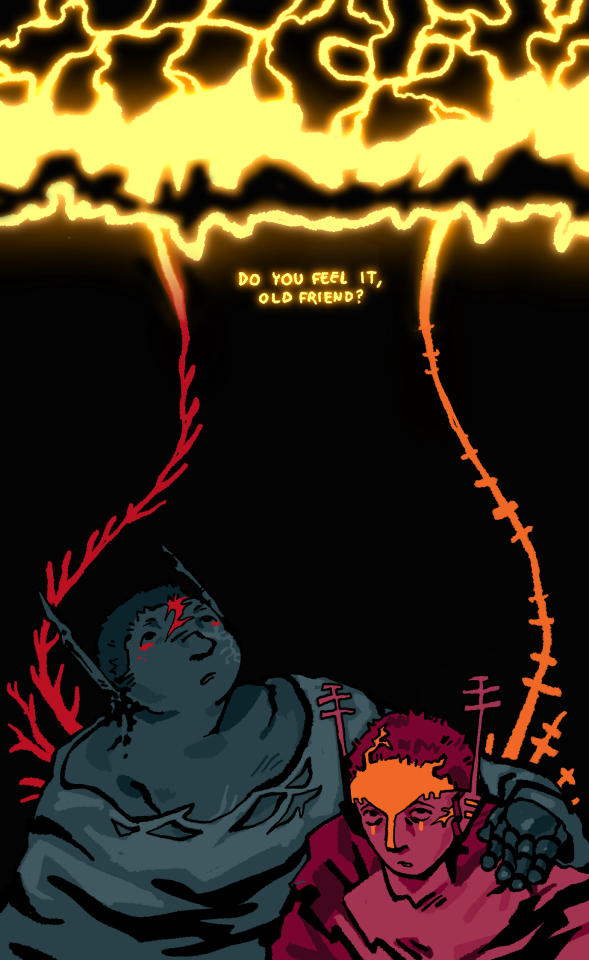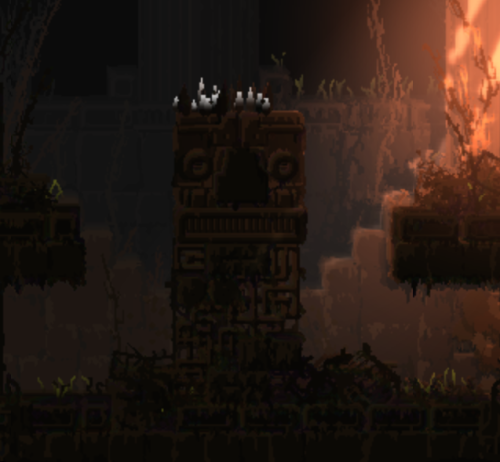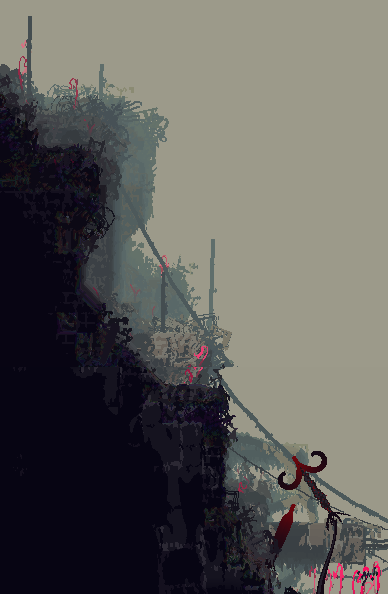None Of This Is Real, Is It?

None of this is real, is it?
(more of my human/cyborg iterators au)
More Posts from Ragequityaoi and Others
I hate being a person who loves bugs, I can't say anything without the person I'm talking to reacting with disgust. Today I had to literally beg a coworker for the life of a spider, and then after I put it in a nook outside she thought it'd be funny to show me a video she took of her killing one. Like idk man. Birds scare the shit out of me but I still get why people love them. They come in pretty colors and they sound nice and they're interesting to observe. I don't understand why people don't feel the same about bugs. The rich amber color of a cockroach, the iridescent glow of a fly, the intricate hydraulics that power their little legs, the chirp of a beetle, the art of the spider's web... It's all so beautiful. Why is it the habit of so many to destroy?
So, I recently had a thought and I kinda wanted to get it out: it seems like the main three heroes and the main villain of Bug Fables all have a theme of moving on from the past, especially past troubles, and how important it is to help each other if we want to do that. Heads up, I’ve been kinda bummed as of late and I’m still kind of bummed right now: I’m also a little tired, and generally not that smart so forgive me if the following is either a) stuff plenty of people have pointed out, or b) nonsensical (the part with Leif in particular I admittedly kind of struggled with). Just thought I’d get the whiny bits out of the way first, forgive me:
Czytaj dalej

i know he is ruining outfits with the comfort hoodie

Modern Carapace: O Bounty Of Thy Ribs is my 72-pg comic about a park ranger named Esther who protects giant bugs from poachers with her prototype mecha, Tarantula Hawk. You should read it!
I'm donating half of my profits to Watermelon Relief, an org dedicated to getting essential resources to displaced families in Gaza.
I get a little self conscious constantly pushing this book but I'm very proud of it, so I hope you don't mind!

silly

i'm so happy when i see him <33333
"Little creature? On the floor of my can? What brings you here?"
"As you can see, I am concentrating to the best of my ability to figure out a very personal problem for us iterators." "What is that in your hand?"
"A pearl?"
"I suppose I haven't read many pearls in a while, so I suppose that I can divert some of my processing power to reading it for you."
"…"
[ The pearl is highly invasive, loud and unusually distressing to decode. As if the message is written in all caps. It details Pebble's inner paranoia and fear, which leaves Moon to realize that her actions were unknowingly causing her brother an inevitable death. ]

[ As this is being processed, the Moon's chamber begins to tremor violently. It seems as though a horrible mistake was made. Something undoable. ] "Oh no, no, no." "What did I do?! My work, Pebbles, I—" [ Her body would fall down onto the ground, as she sat there defeated. ]
"..." "I almost had the answer."
"I could've... helped every iterator."
"…"
"Leave."

hivewing design, now with approximately 400% more bug

I don't post sketches publically at all usually but I think that's one funny soo also I have no idea what I was thinking with this one
I love how the Wasp King is introduced as this regal, imposing, super powerful figure you cannot beat and then the further into the game you go after that point, the more you realise everything about your first impression of him was a lie.
The title of “Wasp King” is already suspicious given that wasps don’t have kings and the game is usually more accurate than that with the other kingdoms. And then you have confirmation that he indeed is not an actual king but usurped the queen’s throne (also when you buy his theme from Samira you see it’s literally titled The Usurper)
Then it’s heavily implied he’s not an actual wasp either
And you find out that actually, once you have some protection against fire, he is indeed beatable, implying he probs was a pretty average bug when not relying on fire magic
And when all is said and done and you look through his bestiary entry, you find out his name is literally a pun on “hoax“
I’ve commented before on the whole symbolism behind him still wearing the rags he had from before under his royal cloak. Like royalty is a disguise he put on to hide the nobody that he was.
Hoaxe never got any respect as himself so he made up his Wasp King persona to force everyone into respecting him no matter the cost
The Architecture of Rain World: Layers of History
A major theme in Rain World's world design that often goes overlooked is the theme of, as James Primate, the level designer, composer and writer calls it, "Layers of History." This is about how the places in the game feel lived-in, and as though they have been built over each other. Here's what he said on the matter as far back as 2014!

The best example of this is Subterranean, the final area of the base game and a climax of the theme. Subterranean is pretty cleanly slpit vertically, there's the modern subway built over the ancient ruins, which are themselves built over the primordial ruins of the depths. Piercing through these layers is Filtration System, a high tech intrusion that cuts through the ground and visibly drills through the ceiling of the depths.
Two Sprouts, Twelve Brackets, the friendly local ghost, tells the player of the "bones of forgotten civilisations, heaped like so many sticks," highlighting this theme of layering as one of the first impressions the player gets of Subterranean. Barely minutes later, the player enters the room SB_H02, where the modern train lines crumble away into a cavern filled with older ruins, which themselves are invaded by the head machines seen prior in outskirts and farm arrays, some of which appear to have been installed destructively into the ruins, some breaking through floors.


These layers flow into each other, highlighting each other's decrepit state.
The filtration system, most likely the latest "layer," is always set apart from the spaces around it. At its top, the train tunnels give way to a vast chasm, where filtration system stands as a tower over the trains, while at the bottom in depths, it penetrates the ceiling of the temple, a destructive presence. (it's also a parallel to the way the leg does something similar in memory crypts, subterranean is full of callbacks like that!)


Filtration system is an interesting kind of transition, in that it is much later and more advanced than both of the areas it cuts between. This is a really interesting choice from James! It would be more "natural" to transition smoothly from the caves of upper subterranean to the depths, but by putting filtration system in between, the two are clearly demarcated as separate. The difference in era becomes palpable, the player has truly found something different and strange.
Depths itself is, obviously, the oldest layer not only of subterranean but of the game itself. The architecture of Depths has little to do with the rest of the game around it, it's a clear sign of the forgotten civilisations that our friend Two Sprouts, Twelve Brackets showed us, there's not actually that much to say about it itself, it's mostly about how it interacts with the other layers of subterranean.
That said, Subterranean is far from the only case of the theme of layers of history. It's present as soon as the player starts the game!
The very first room of the game, SU_C04, is seemingly a cave. It is below the surface, the shapes of it are distinctly amorphous rather than geometric. (well. kind of, it doesn't do a very good job of hiding the tile grid with its 45 degree angles.)

But let's take a closer look, shall we?

See that ground? it's made of bricks. The entire cave area of outskirts is characterised by this, the "chaotic stone" masonry asset is mixed with brickwork, unlike the surface ruins which are mostly stone. This, seemingly, is an inversion of common sense! The caves are bricks and the buildings are stone. This is not, however, a strange and unique aspect but a recurring motif.


This occurs enough in the game for it to be clearly intentional, but why would materials such as bricks be used in otherwise natural looking terrain?
The answer lies in the "Layers of History" theme. This is in fact, something that happens in real life, and it's called a tell

To be specific, a tell is a kind of mound formed by settlements building over the ruins of previous iterations of themselves. Centuries of rubble and detritus form until a hill grows from the city. Cities such as Troy and Jericho are famous examples. The connections to the layers of history theme are pretty clear here, I think. Cities growing, then dying, then becoming the bedrock of the next city. The ground, then, is made of bricks, because the ground is the rubble of past buildings. The bones of forgotten civilisations, heaped like so many sticks!
-
 fishyaudio liked this · 3 weeks ago
fishyaudio liked this · 3 weeks ago -
 maxiewell liked this · 3 weeks ago
maxiewell liked this · 3 weeks ago -
 end-orfino reblogged this · 3 weeks ago
end-orfino reblogged this · 3 weeks ago -
 end-orfino liked this · 3 weeks ago
end-orfino liked this · 3 weeks ago -
 khropsya liked this · 2 months ago
khropsya liked this · 2 months ago -
 virtuousvigil liked this · 2 months ago
virtuousvigil liked this · 2 months ago -
 butchhatred liked this · 2 months ago
butchhatred liked this · 2 months ago -
 starr-blaze liked this · 3 months ago
starr-blaze liked this · 3 months ago -
 fl4xenfields reblogged this · 3 months ago
fl4xenfields reblogged this · 3 months ago -
 bluesamurai2000 liked this · 3 months ago
bluesamurai2000 liked this · 3 months ago -
 skiafraylanasache liked this · 3 months ago
skiafraylanasache liked this · 3 months ago -
 composing-the-future liked this · 3 months ago
composing-the-future liked this · 3 months ago -
 lilybug-02 liked this · 4 months ago
lilybug-02 liked this · 4 months ago -
 zombiichu liked this · 5 months ago
zombiichu liked this · 5 months ago -
 otbleks liked this · 5 months ago
otbleks liked this · 5 months ago -
 thetroupemaster liked this · 5 months ago
thetroupemaster liked this · 5 months ago -
 digital-dragoon liked this · 5 months ago
digital-dragoon liked this · 5 months ago -
 reclaiming-entropy reblogged this · 5 months ago
reclaiming-entropy reblogged this · 5 months ago -
 falconre-re liked this · 5 months ago
falconre-re liked this · 5 months ago -
 nebulius liked this · 5 months ago
nebulius liked this · 5 months ago -
 tiredanomaly501 liked this · 5 months ago
tiredanomaly501 liked this · 5 months ago -
 secondscorn reblogged this · 5 months ago
secondscorn reblogged this · 5 months ago -
 shimmering-delta liked this · 6 months ago
shimmering-delta liked this · 6 months ago -
 adfeelsthings reblogged this · 6 months ago
adfeelsthings reblogged this · 6 months ago -
 illusion133 liked this · 6 months ago
illusion133 liked this · 6 months ago -
 queezelooweeze212 liked this · 6 months ago
queezelooweeze212 liked this · 6 months ago -
 sliverspeaks liked this · 6 months ago
sliverspeaks liked this · 6 months ago -
 rainworldfan381 liked this · 6 months ago
rainworldfan381 liked this · 6 months ago -
 robotgirlwires liked this · 6 months ago
robotgirlwires liked this · 6 months ago -
 asterizmz liked this · 6 months ago
asterizmz liked this · 6 months ago -
 wiresmademan reblogged this · 6 months ago
wiresmademan reblogged this · 6 months ago -
 maleficmosquito liked this · 6 months ago
maleficmosquito liked this · 6 months ago -
 maythray liked this · 6 months ago
maythray liked this · 6 months ago -
 cat-vase reblogged this · 6 months ago
cat-vase reblogged this · 6 months ago -
 muuemz liked this · 7 months ago
muuemz liked this · 7 months ago -
 zigzagzoom94 liked this · 7 months ago
zigzagzoom94 liked this · 7 months ago -
 drowningparty liked this · 7 months ago
drowningparty liked this · 7 months ago -
 iamalivenow reblogged this · 7 months ago
iamalivenow reblogged this · 7 months ago -
 localcoffeeaddict liked this · 7 months ago
localcoffeeaddict liked this · 7 months ago -
 static-ink55 reblogged this · 7 months ago
static-ink55 reblogged this · 7 months ago -
 static-ink55 liked this · 7 months ago
static-ink55 liked this · 7 months ago -
 thenamesapollo liked this · 7 months ago
thenamesapollo liked this · 7 months ago -
 shortriver0 liked this · 7 months ago
shortriver0 liked this · 7 months ago -
 strawberryicecreamin reblogged this · 7 months ago
strawberryicecreamin reblogged this · 7 months ago -
 spookmctoasty liked this · 7 months ago
spookmctoasty liked this · 7 months ago -
 roastedpriv liked this · 7 months ago
roastedpriv liked this · 7 months ago -
 ochiody liked this · 7 months ago
ochiody liked this · 7 months ago -
 skinfactoryemployee liked this · 7 months ago
skinfactoryemployee liked this · 7 months ago

he/she and any neos, a multifandom silly guy autismpebbles.straw.page
86 posts